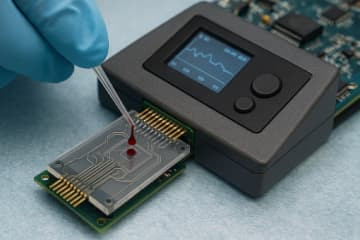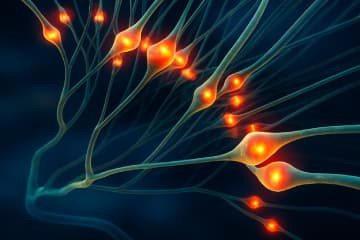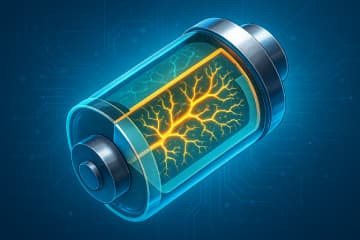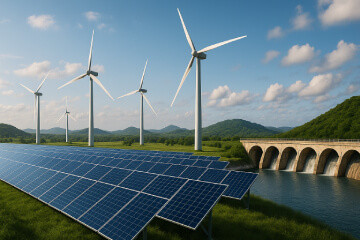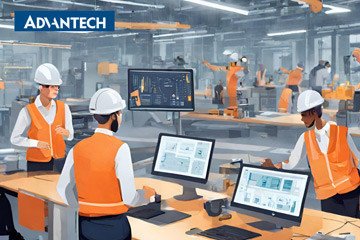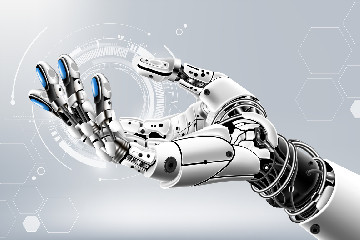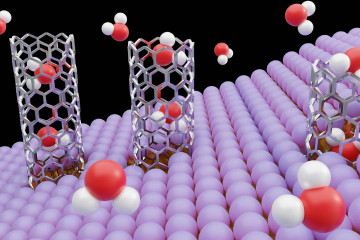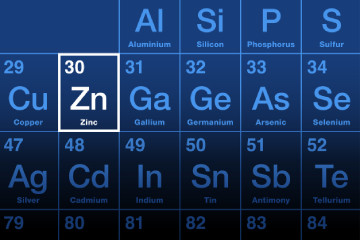Technical Analysis
The content in this section offers technical knowledge and insights in the form of white papers, component datasheets and case studies, submitted by industry leaders and global component manufacturers & distributors in the electronics industry.
Key Things to Know: Injectable bioelectronics using hydrogels offer a biocompatible alternative to rigid implants but often suffer from low conductivity due to poor dispersibility of conductive materials. A new approach replaces tr...
By Liam Critchley | 07-08-2025
Conceptual illustration: AI-enhanced microfluidic diagnostic device for rapid sepsis detection (AI-generated image, not a real-world photograph of the actual PREDICT platform). Key Things to Know: Sepsis remains a global health emergency,...
By Liam Critchley | 31-07-2025
Key Things to Know: Solid-state lithium batteries (SSLBs) offer higher energy density and safety compared to conventional Li-ion batteries, thanks to non-flammable electrolytes and lithium metal anodes. Early-stage degradation—part...
By Liam Critchley | 29-07-2025
Key Things to Know: Iontronic devices use ionic transport to interface with biological systems, enabling bioelectronic applications such as neural prosthetics and brain-machine interfaces. Electrochemical capacitors (ECs) offer rap...
By Liam Critchley | 25-07-2025
Electropages Podcasts
Key Things to Know: Dielectric capacitors are critical for advanced electronics but require radiation resistance for extreme environments. Researchers developed a dendritic nanocomposite film capacitor that combines high energy den...
By Liam Critchley | 16-07-2025
Key Takeaways: Hydropower's role is growing – As intermittent renewables increase, hydropower offers essential grid support through stable frequency and voltage regulation. Fatigue damage is a rising concern – Modern turbines face...
By Liam Critchley | 15-05-2025
Key Takeaways: Over 1 billion people globally live with visual impairment, with urban environments posing significant navigation risks due to fast-moving or sudden obstacles. A newly developed wearable device combines glasses and a...
By Liam Critchley | 08-05-2025
Key Thing to Know: Smart factories are reshaping manufacturing through hyper-connectivity, machine automation, and real-time data, driven by the Industrial Internet of Things (IIoT). Digital convergence of IT and OT enables near-co...
By Advantech | 09-04-2025
Key Thing to Know: Flexible pressure sensors are essential for enabling fine motor control in humanoid robots, but current versions often struggle with interference from moisture, bending, and electromagnetic fields in real-world environme...
By Liam Critchley | 07-04-2025
Key Thing to Know: Uranium in seawater is a vast, untapped resource, with ~4.5 billion tonnes—about 1,000 times more than land-based reserves—but traditional extraction methods produce impure uranium. Electrochemical extraction off...
By Liam Critchley | 04-04-2025
Key Things to Know: Miniaturization of FETs: Engineers are developing ultrathin silicon nanowires (below 30 nm) to create smaller and more efficient field-effect transistors (FETs) for advanced electronics. Challenges in Fabricatio...
By Liam Critchley | 13-03-2025
Key Things to Know: Zinc Flow Batteries as an Alternative: While Li-ion batteries dominate the market, zinc-based batteries—especially zinc polyiodide flow batteries (ZIFBs)—are emerging as safer and cost-effective options for grid-scale e...
By Liam Critchley | 11-03-2025
Key Things to Know: AI's Learning Limitations – Traditional AI models struggle with catastrophic forgetting, meaning they can't learn new information without erasing previous knowledge. Biological Inspiration – Researchers are desi...
By Liam Critchley | 06-03-2025
Introduction TSN: A Strategic Enabler for Avionics and Space Industries Time Sensitive Networking (TSN) is not merely an enhancement to Ethernet; it is a transformative approach that redefines the capabilities of networked systems in critical sectors. The Avi...
By Jack Pollard | 05-03-2025


